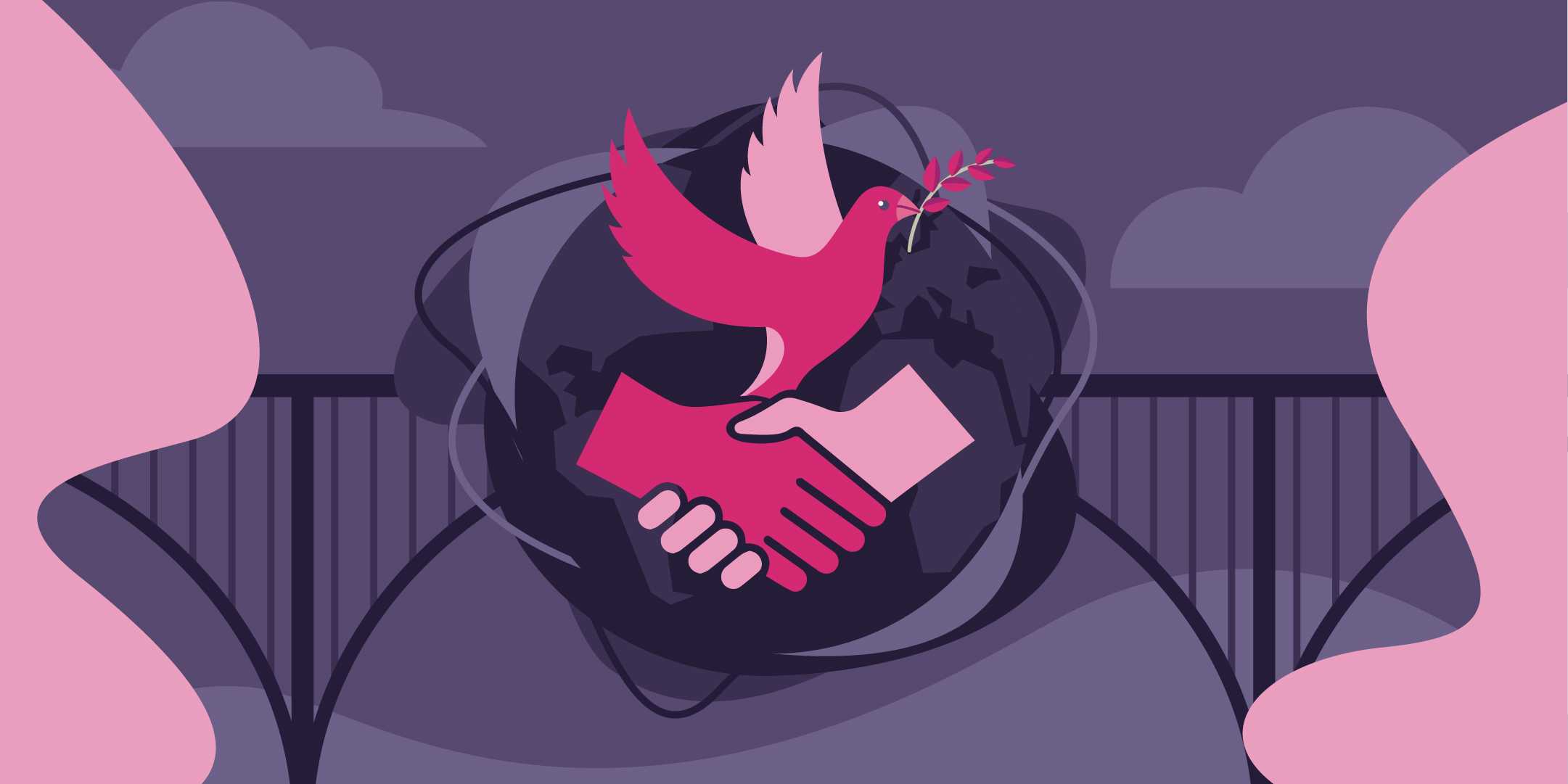
Five questions to: Christina Horváth-Stenner (MAS ETH in Mediation in Peace Processes)
"Inspired by the best": we are taking a closer look at what we claim to be. What are the sources of inspiration in continuing education? Dr Christina Horváth-Stenner recently completed the MAS ETH in Mediation in Peace Processes. For her, in addition to its professionalism and high quality, the studies at ETH were truly enriching due to exchanges with her fellow students.
Interview with Christina Horváth-Stenner
School for Continuing Education: What career phase has been the most formative for you?
Christina Horváth-Stenner: The violent breakup of the sit-down strike of the Muslim Brotherhood in Cairo in 2013 was one of the most formative events in my career. Over a period of two years, I had put all my energy into promoting more political dialogue in Egypt. The fresh outbreak of (state) violence surprised me and was a disappointment. The event made me think a lot about my own sphere of influence. It also made me want to shape policy more. Thus, it was, and remains, the career phase that influenced my current work as an OSCE mediation advisor the most. At the OSCE, among other things, I support OSCE Special Representatives towards more effectiveness in various peace processes.
Who or what inspires you?
I am fascinated by people and their behaviour in conflicts, and especially by their ability to resolve them. At the same time, I am convinced that it is worth trying to resolve all types of conflict peacefully. My work in political peace mediation allows me to link human, psychological phenomena with political power interests in an ideal way.

Dr Christina Horváth-Stenner recently completed the ETH Master Mediation in Peace Processes programme. She is a senior mediation expert, specialising in economic issues in peace processes, process design (particularly in protracted conflicts) and technical negotiating skills. Currently she is working as a Mediation Support Officer at the OSCE in Vienna, with a focus on Ukraine. Dr. Horvath-Stenner’s regional experience includes support work for Track 1–2 peace processes in the Balkans, Ukraine, Moldova, Georgia, Egypt and East Asia. She speaks English, Japanese and French. She recently co-founded the external page Women Peace Mediators Germany Network (WPM).
What were your expectations when you began your continuing education programme at ETH Zurich? Were they fulfilled?
Yes, my expectations were more than fulfilled! I started the MAS ETH in Mediation in Peace Processes programme (MAS ETH MPP) with the expectation that I would acquire both food for thought regarding the realpolitik challenges of my work, and scientific knowledge drawn from conflict research. Last but not least, I was also seeking like-minded persons from within my field. In addition to featuring professionality and high quality, my studies at ETH were truly enriching due to exchanges with my fellow students.
What possibilities did virtual learning offer you during the MAS ETH MPP programme?
I was pleasantly surprised at how well online learning goes. I think that the key to successful digital learning is to deploy the entire, varied range of technical possibilities alternately. Just as when television (mistakenly) started with radio moderation only, there is more to digital teaching than lectures via Zoom. During the digital module we wrote books together, created a social media network and even met on a digital beach for cocktails!
Events in practice: The international OSCE Monitoring Mission in Ukraine was not extended due to Russia’s veto. In the meantime all monitors have been withdrawn from the area. How do you view the effects of this development?
The normal six-monthly extension of the OSCE Special Monitoring Mission’s mandate scheduled for the end of March 2022 did not happen due to lack of consensus among the OSCE participating States. The Mission now finds itself operating in administrative mode. Moreover, the OSCE is still represented by another Mission, the Project Coordinator in Ukraine. Now, it is up to the parties to the conflict to defend their interests not through further military action, but through negotiation. No matter how a comprehensive peace agreement might look, the OSCE, and doubtless other organisations, will be able to offer suitable instruments in support of peace.
More information about the MAS ETH in Mediation in Peace Processes